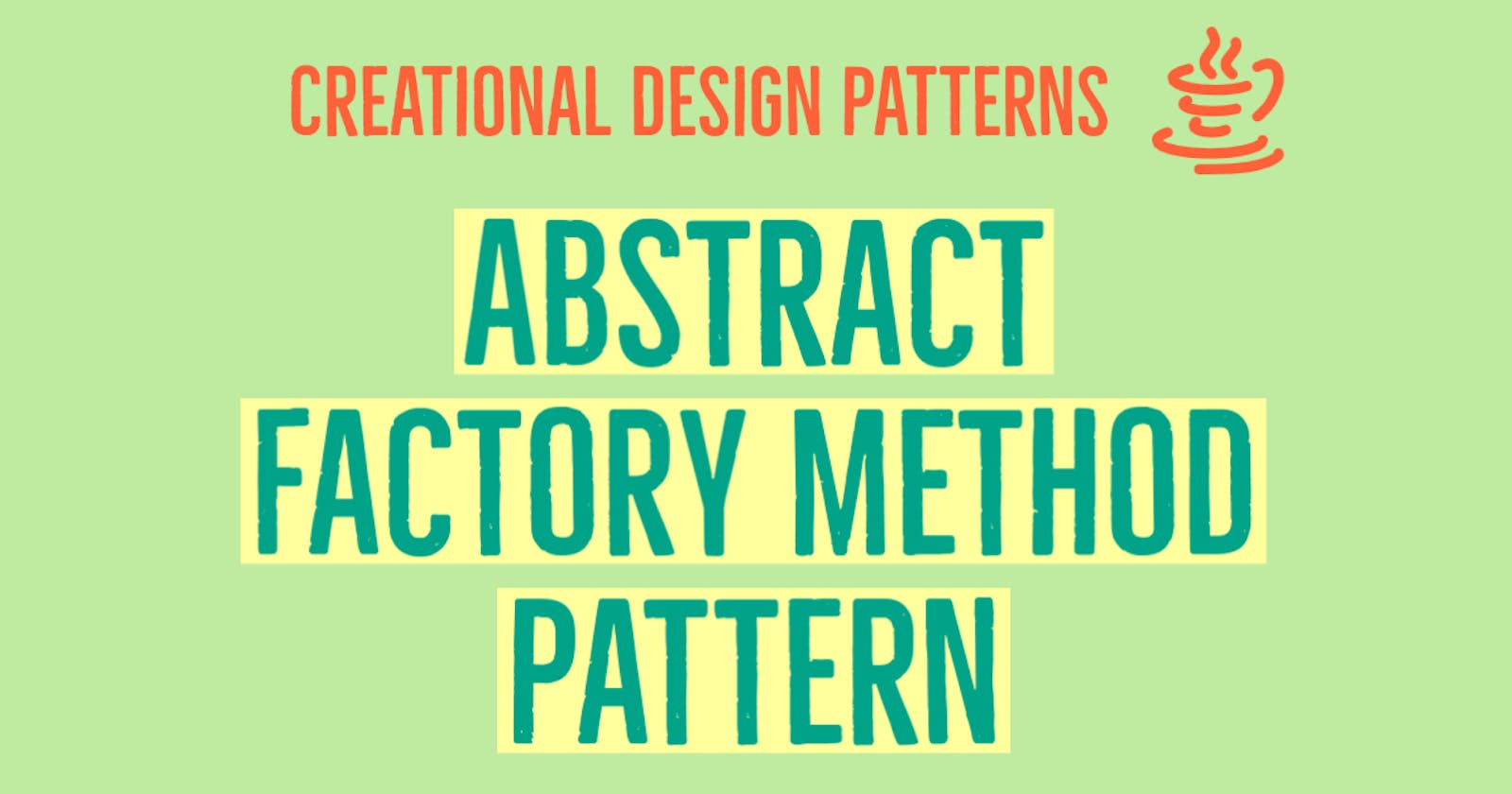Abstract Factory Method Pattern
Abstract Factory Method(kit) provides an interface for creating suits of related objects without specifying their concrete classes
Abstract Factory Method(kit) provides an interface for creating suits of related objects without specifying their concrete classes
PermalinkMotivation
Consider an application which supports different standard of appearance and behavior. Each component in a standard should be used together. Hard-coding this standards will pose a problem as it will not be portable. We also should not mix the components that make up the standard.
The Abstract Factory method pattern solves this problem by providing the necessary interface for creating an appropriate class instance. And also enabling clients to work with interfaces, without worrying about the concrete classes.
PermalinkApplicability
The abstract factory method pattern can be used in cases where:
- Configuration of the system requires a suite of products.
- Implementation of products must be hidden and only their interface disclosed
- Suites of objects must be used together
PermalinkStructure

PermalinkParticipants
- AbstractFactory: Interface for methods that create abstract products
- ConcreteFactory: Implementation for methods that create abstract products
- AbstractProduct: Interface for Product object
- ConcreteProduct: Implementation of the AbstractProduct interface.
- Client: Use interfaces declared by AbstractFactory and AbstractProduct classes.
PermalinkCollaborations
- AbstractFactory transfers the responsibility of product object creation to its concrete sub- classes
PermalinkAdvantages
- Promotes loose-coupling between client and concrete products
- Increased flexibility in code as new variants of products can be integrated without changes in client code
PermalinkDisadvantages
- Increased complexity in code due to increase in new interfaces and classes
PermalinkImplementation
Applications generally need one instance of a Factory, so they are typically implemented as Singletons. The AbstractFactory does not have an implementation for product creation and the ConcreteProduct sub-classes commonly define factory methods for this purpose.
PermalinkDemo
Following up on our cafe example:
There are now several new branches of the cafe and we have managed to change the language of the menu for each branch. But the owners now want each branch to have unique interior design. Each branch will have a different look, the pictures on the wall and the staff uniform should be different.
To solve this problem, we create interfaces for WallPicture and StaffUniform. Then we create concrete classes that implement these interfaces. After that, we create an abstract BranchFactory class that will return WallPicture and StaffUniform objects. Lastly we will create a static class FactoryCreator to generate BranchFactory object based on the information passed.


Article Series
Creational Design Patterns in Java
Introduction
Creational patterns hide how instance of classes are constructed. Thereby enabling more independence…
Factory Method Pattern
Factory Method(virtual constructor) provides an interface for creating objects in a super-class, but…
Object Pool Pattern
Object Pool (resource pools) provide container to reuse objects that are expensive to create. Motiv…
Builder Pattern
Builder pattern separates the construction of complex object from its representation, so that the sa…
Prototype Pattern
Prototype(clone) pattern allows copying an object using a prototypical instance Motivation Consider…
Singleton Pattern
Singleton pattern allows creation of only a single instance from a class Motivation Consider a case…